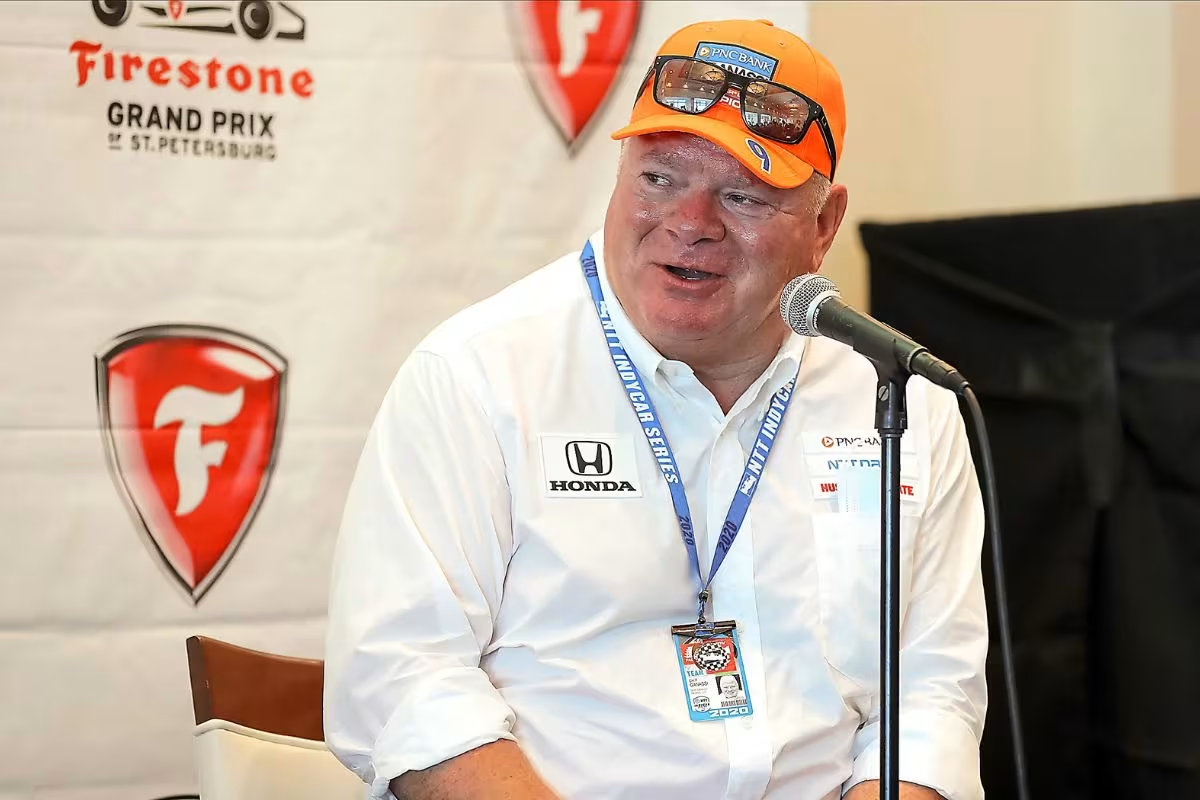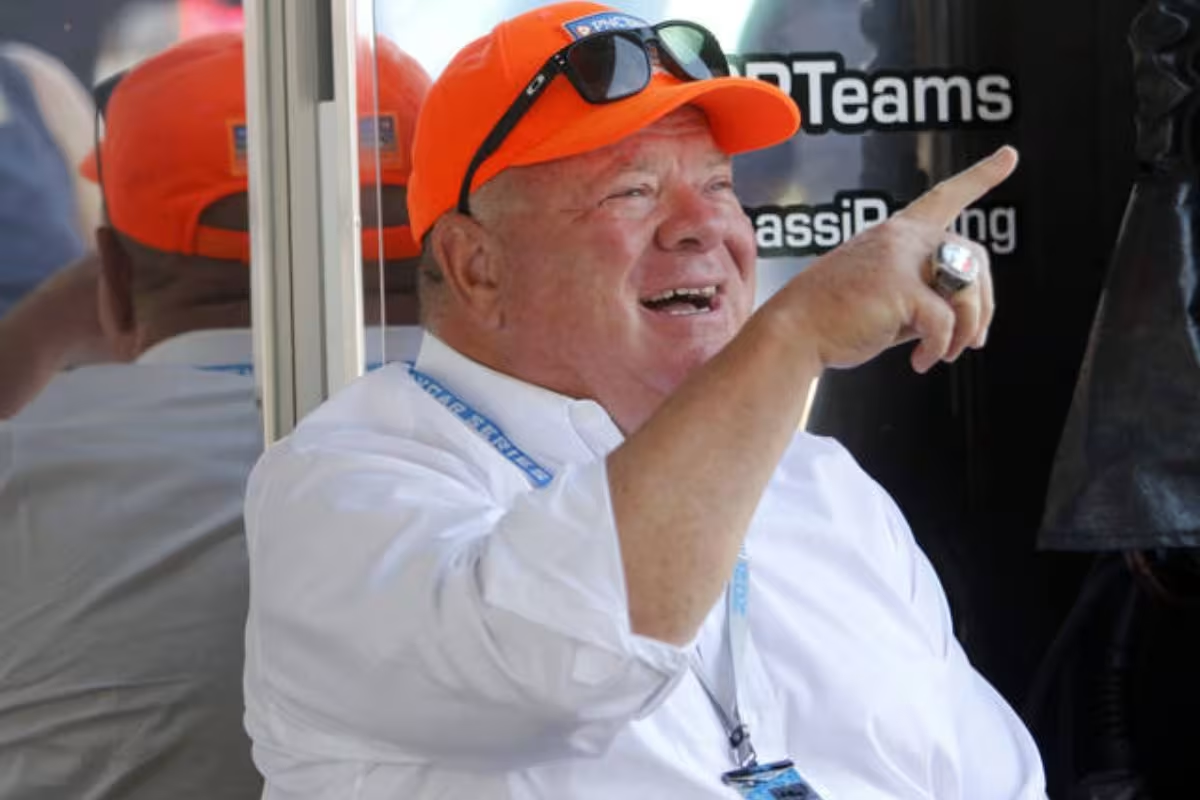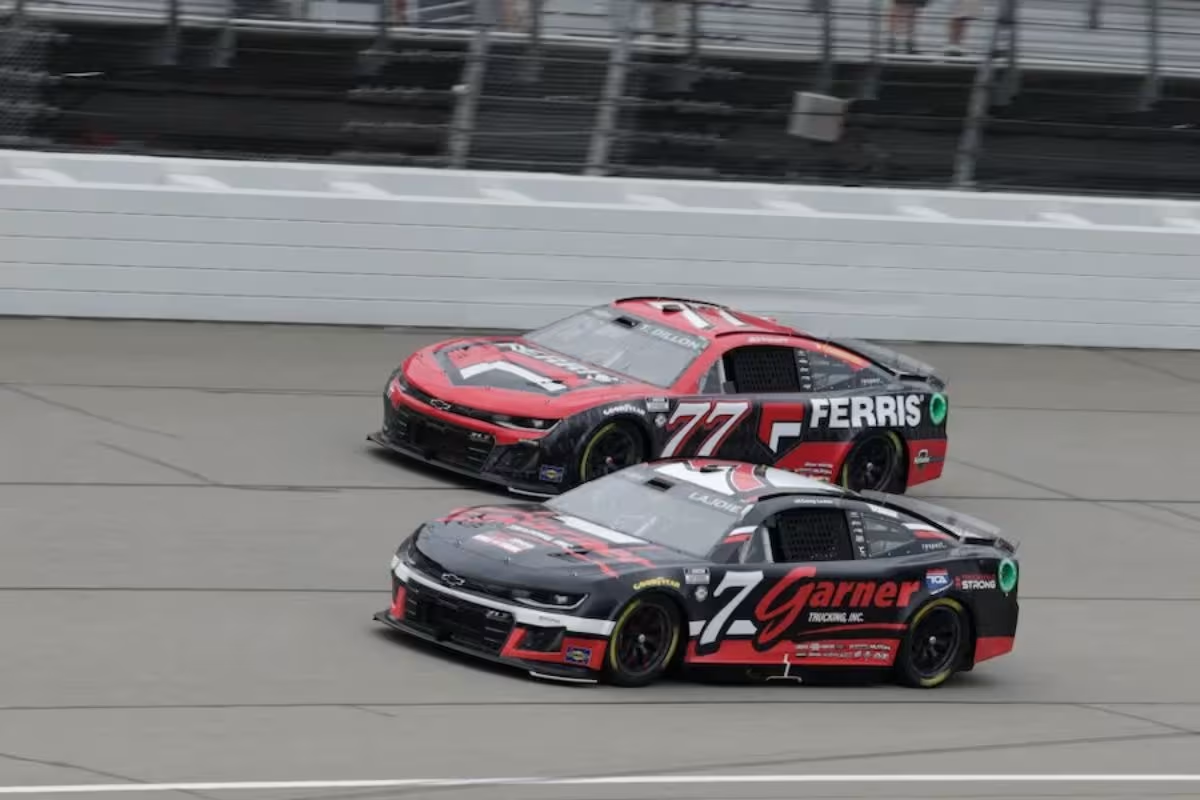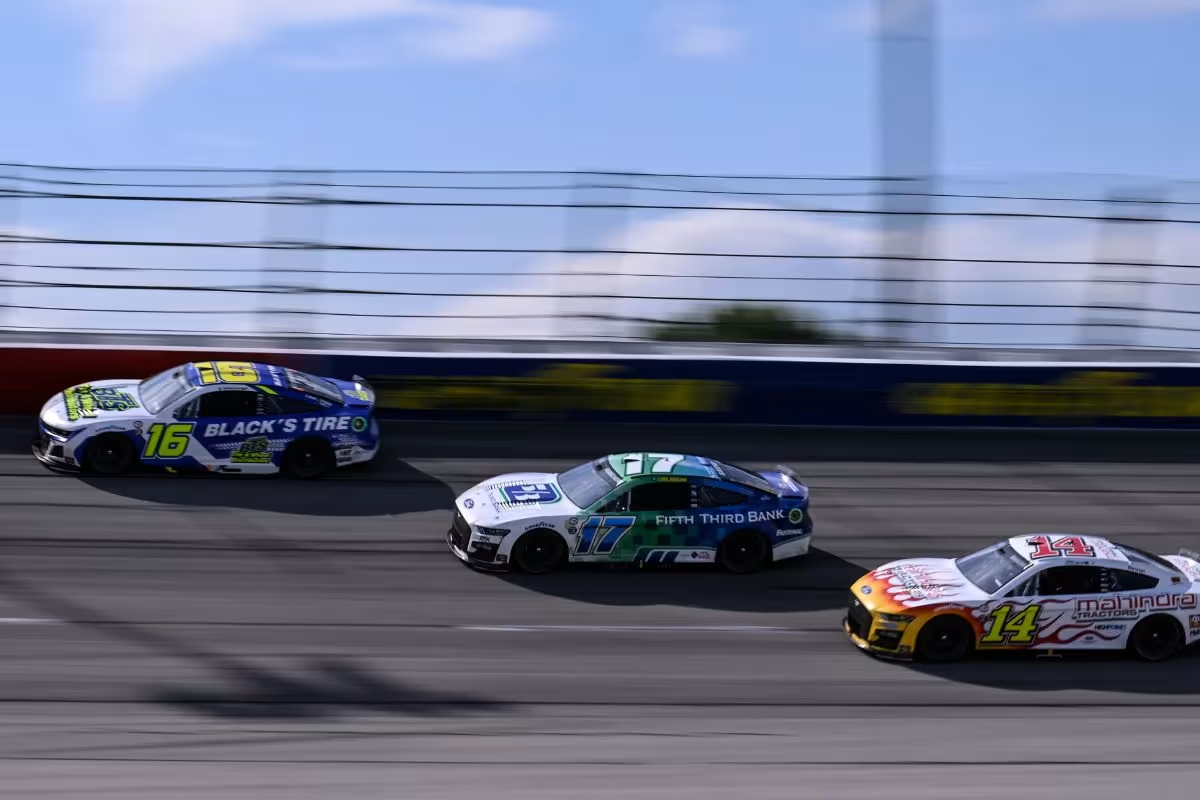Chip Ganassi’s 20 Million Dollar Mistake: Chip Ganassi Racing’s tumultuous expedition following Kyle Larson‘s controversial remarks in 2020 raises critical questions about the intersection of ethics and business in NASCAR. The $20 million loss not only reflects a financial misstep but also highlights a deeper betrayal of the loyal fanbase that expects integrity and accountability from their teams. As sponsorships dwindled and public trust eroded, the implications for the future of CGR and the broader NASCAR community became increasingly pronounced.
Key Highlights
- Chip Ganassi Racing faced a reputational hit due to Kyle Larson’s racial comments, leading to sponsorship declines and distrust among fans.
- The controversy raised questions about CGR’s commitment to diversity and inclusion, alienating loyal fan segments.
- Loss of visibility and support following the incident was estimated to cost CGR around $20 million in potential revenue and sponsorships.
- Fans perceived CGR’s handling of the situation as a betrayal, damaging long-standing loyalty and emotional connections to the team.
- The fallout from the controversy jeopardized CGR’s competitive standing in NASCAR, impacting fan enthusiasm and engagement.
Chip Ganassi Racing’s Early Success and Struggles
In the domain of NASCAR, few teams have navigated the tumultuous waters of success and adversity as adeptly as Chip Ganassi Racing (CGR). Established in 2001, CGR entered a competitive arena dominated by the likes of Hendrick Motorsports and Joe Gibbs Racing. Despite these formidable rivals, Ganassi’s ambitious project quickly carved out its own niche, achieving notable victories in prestigious events such as the Daytona 500 and Brickyard 400. This early success signified CGR’s ability to compete at the highest level, establishing itself as a legitimate contender in the NASCAR ecosystem.
However, this path was not without its challenges. The controversy surrounding driver Kyle Larson’s racial comments in 2020 cast a long shadow over the organization, threatening to dismantle the hard-earned reputation CGR had built. This incident not only impacted sponsorship but also raised questions about the team’s commitment to diversity and inclusion within the sport. The repercussions were profound, leading to a substantial decline in performance and visibility that could have jeopardized the team’s future.
In the wake of these struggles, creative leadership became paramount. Justin Marks, a key figure in the team’s resurgence, recognized the necessity for tactical pivots to navigate this crisis. His vision for revitalizing CGR highlighted the importance of adaptability in NASCAR, setting the stage for potential rejuvenation amid adversity.
Consequently, CGR’s early success, coupled with its struggles, reflects a complex narrative of resilience and transformation within a competitive landscape.
Justin Marks’ Offer to Chip Ganassi
As Chip Ganassi Racing sought to regain its footing following a tumultuous period, the opportunity for collaboration emerged in an unexpected form. Justin Marks, a former driver under the Ganassi banner, recognized a vital moment to propose an offer that could redefine his career and the future of Ganassi Racing.
With a modest track record in NASCAR, Marks had found some success in the Xfinity Series but aspired to establish his own team, a venture that required considerable capital and tactical foresight.
In 2020, Marks initiated the process of leasing a charter from Spire Motorsports, yet he understood that true growth necessitated ownership of charters, which at the time were valued at $10 million each. With limited options to acquire extra charters, Marks identified Ganassi as a key ally.
His proposition was not merely a business transaction; it was a lifeline for both parties. By securing Ganassi’s two charters, Marks aimed to utilize his past experience and racing legacy to launch a competitive team.
“I called him and said, Look I have big dreams and big plans and big ambitious vision for my company but I’m not gonna get there if I don’t make a serious investment…I think there’s no grand design behind it; there’s no real piece of wisdom or anything like that. Sometimes you just gotta pick up the phone and make the call and throw caution to the wind, and luckily for me, I have a great relationship with Chip and flipped to Pitsburg and walked through what my vision was for my company.”- Marks
Marks’ offer stemmed from a blend of nostalgia and pragmatism, recognizing the potential synergy between his aspirations and Ganassi’s need for tactical realignment.
The negotiation represented a crossroads that could either rejuvenate the Ganassi brand or precipitate further decline, illustrating the delicate balance of ambition and legacy in the high-stakes world of motorsport.
Justin Marks’ Pitch to Chip Ganassi
How could a simple phone call reshape the future of Chip Ganassi Racing? This pivotal moment came when Justin Marks, motivated by a clear vision for his company, reached out to Ganassi to discuss his ambitions. Marks articulated a straightforward yet profound message: without a serious investment, his dreams would remain unattainable. This call was not merely a business interaction; it represented a potential partnership that could invigorate the racing landscape.
Marks emphasized the importance of their existing relationship, suggesting that Ganassi, after years of ownership, might be inclined to support a successor who shared his passion for the sport. This sentiment highlights a vital psychological aspect of leadership—mentorship and legacy. Ganassi’s legacy in NASCAR is substantial, and Marks’s proposal tapped into the emotional spectrum of that legacy, offering Ganassi a chance to pass the torch to someone who would uphold the values he cherished.
“I don’t wanna speak for him, but I got the impression maybe that when his days of being a NASCAR Cup series team owner were over, he wanted to do something like he did with someone like me. Someone that was gonna take it with the same ambition and passion, and love for the sport that he had when he got started and then put our own spin on it.” – marks
Marks’s approach was candid and earnest, devoid of pretension. He recognized that sometimes success hinges on taking risks and seizing opportunities, exemplified by his decision to “throw caution to the wind.” By sharing his vision openly, he fostered an environment conducive to collaboration.
In doing so, Marks not only positioned himself as a worthy successor but also as a catalyst for Ganassi’s potential shift from team owner to mentor—an opportunity for both men to redefine their contributions to NASCAR. This call, consequently, was not just about business; it was about the future of a racing dynasty.
Trackhouse Racing’s Rise in NASCAR
The conversation between Justin Marks and Chip Ganassi not only illuminated the potential for mentorship but also set the stage for a revolutionary shift in NASCAR, exemplified by the emergence of Trackhouse Racing. Founded in 2021, Trackhouse Racing has rapidly ascended the competitive ranks, distinguishing itself through a unique blend of cutting-edge strategies and a fresh approach to team dynamics.
Justin Marks, a seasoned entrepreneur, has successfully translated his business insight into the NASCAR arena, positioning Trackhouse Racing as a formidable contender. His vision extends beyond merely fielding cars; it encompasses creating a brand that resonates with fans and stakeholders alike. This ethos is reflected in the team’s performance, led by the impressive achievements of Ross Chastain and Daniel Suarez, who have both found a home in this burgeoning organization.
Chastain’s victories and a Championship 4 appearance underscore the team’s capability to compete with established giants in the sport.
Moreover, Trackhouse Racing’s focus on fostering driver talent and promoting diversity within the sport highlights its commitment to redefining NASCAR’s traditional landscape. By integrating a progressive mindset with competitive intensity, the team not only challenges the status quo but also sets a precedent for future entrants in the series.
As Trackhouse Racing continues to build momentum, it not only poses a threat to legacy teams but also embodies a game-changing force in NASCAR, compelling established entities to rethink their strategies in a rapidly evolving environment.
Trackhouse Racing’s Plans for 2025
With an eye toward the future, Trackhouse Racing is tactically expanding its operations for the 2025 season. This calculated evolution not only reflects the team’s ambition but also positions them as formidable contenders in the NASCAR landscape.
As they refine their competitive edge, several key developments are set to define their path:
- Three-Car Operation: The acquisition of a additional charter allows Trackhouse to optimize its talent pool, paving the way for Shane van Gisbergen (SVG) to shift into a full-time Cup Series role.
- Rising Stars: Connor Zilisch, a promising young driver, will be nurtured through a partnership with JR Motorsports, ensuring a robust pipeline of talent for the team’s future.
- SVG’s Road Racing Skill: SVG’s historic win at the inaugural Chicago street race has established him as a premier road racer, and his full-time commitment is expected to boost the team’s performance metrics.
- Playoff Aspirations: With Daniel Suarez and the #99 team working for a deeper playoff run, the foundation is set for an impactful season, making Trackhouse a team to watch.
The 2025 season promises not only to improve their competitive stature but also to engage a loyal fanbase enthusiastic for innovation and success within the sport.
News in Brief: Chip Ganassi’s 20 Million Dollar Mistake
The repercussions of Chip Ganassi’s $20 million mistake highlights the critical need for accountability within NASCAR teams. The decline in sponsorship and fan loyalty following the Larson controversy highlights the fragile relationship between teams and their supporters, particularly regarding values of integrity and diversity. As competitors like Trackhouse Racing emerge with a focus on these principles, the importance of fostering trust and maintaining a positive reputation in the sport becomes increasingly evident for all stakeholders involved.
ALSO READ: Kaulig Racing Snags Ty Norris from Trackhouse Racing—What’s the Impact?




